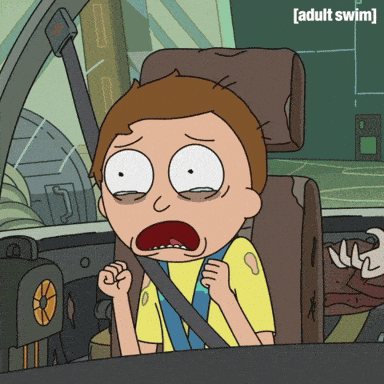- Write Like You Mean It
- Posts
- I secretly fear I’m not good enough
I secretly fear I’m not good enough
Do you?
Do you ever feel like the successes you have are down to luck rather than skill?
Many ‘wildly successful’ people do.
They feel like a fraud at work, like they don’t really belong, like at any moment someone will expose them for the fraud they believe themselves to be.
They just hide it.
Maybe you’re hiding it too.
“Yes, but they deserve to be where they are. They studied / came from a ‘proper’ background / have more experience / know what they’re doing.
They’re not me. They have imposter syndrome. I’m actually faking it. It’s not imposter syndrome if you’re an actual imposter, is it? It’s just, well, IMPOSTER.”
For writers, marketers, communicators and creatives, imposter syndrome is way too common.
Chuck in being marginalised and/or minoritised and the imposter syndrome ramps right up.
But why do I fear I’m not good enough, despite evidence to the contrary?
Why do you?
The early days of doubt
When I quit my job in the summer of 2012, I had no plan and very little money.
I was living in south London in a small, low-ceilinged, damp flat.
I had ambitions to start an advertising agency for the education sector, writing their ads and outsourcing the design. There was one small problem: I had absolutely no idea how to start a business.

But the rent was due. So I did what I do best – I wrote. Back then, fiverr.com really was about selling gigs for a fiver. So that’s what I did.
That first month was brutal. I worked for a fiver for each 500 words I wrote. I still had imposter syndrome about my writing, but my doubts and fears about starting a business were so massive-huge, there honestly wasn’t much left over for writing.
I pressed on and eventually built a successful freelance writing business and a website for other writers, which I recently sold (not for a fiver). All of which paved the way to heading up marketing and comms teams at charities and nonprofits.
Which sounds alright when you lay it out like that. But my path was paved with a heady cocktail of short-lived highs of confidence, followed by the crushing lows of imposter syndrome.

Despite my doubts and fears, I kept going. Yes, partly because I didn’t have much choice (pesky rent), but also because there was a tiny, stubborn part of me that believed I had something valuable to offer.
That small flicker of self-belief was CRUCIAL.
And I bet there’s a small flicker in you too.
If so, I bring news: That flicker can grow into roaring flames of self-confidence. (Ooh, fire analogy.)
But it doesn’t happen overnight.
Why do we get imposter syndrome anyway?
No simple answer. People from all walks of life in different industries experience imposter syndrome, either in short bouts or for long periods.
But for people like us – marketers, writers, creatives and those who want to make something of themselves and even, dare I say it, make a difference in the world – it comes down to a combination of a few things, which together make the shitstorm of imposterdom rain-eth down. 👇️
Keeping up
The marketing world changes quickly. You’re expected to be constantly learning, constantly adapting, and all over the latest industry trends.
This causes burnout and creates imposter syndrome. Simple as that.
Public flogging
There’s also the double whammy of all your work being open to daily public scrutiny (which other industry or department in your org has that?), and everybody thinking they can ‘do marketing.’
Everyone uses social media, everyone writes emails, everyone’s got a bloody podcast. So, ya know, it’s easy, innit?
‘Constructive feedback’ from that troll on Twitter/X or colleagues who don’t have the word 'marketing’ in their job title, isn’t usually helpful. If you start to pre-empt this ‘feedback’, imposter syndrome will creep in.
The more is more effect
Content creators have gone content cray-cray. The sheer quantity of content being pumped out means marketers comparing themselves to their peers can feel inadequate.
This can lead to an acute case of the I’m Not Doing Enoughs.
Under pressure
Marketers are usually under a huge amount of pressure to get that out there, make this pretty, get results fast, quickly do the comms on this, etc.
We often work to tight deadlines and with factors outside our control. No wonder this leads to a constant fear of failure and self-doubt. The odds are stacked, and they ain’t in our favour.
The diversity factor
People from marginalised and/or minoritised groups are already being told we’re not good enough. Throw the above factors into the mix and we’ve got imposter syndrome written all over us.
Point to note: There is no imposter syndrome without the patriarchy, racism, ableism, homophobia, biphobia, transphobia or rampant late capitalism.

So.
You want solutions, I guess.
I haven’t figured it all out yet.
Wait! I have figured out some of it. Here’s everything I know about how to dropkick imposter syndrome. 👇️
Recognise it as imposter syndrome
You know when you ask your therapist what the answer is and instead of giving you a solution to your problem they tilt their head to the side and say in a slow, soft voice: “The first step is just being aware of it.”?
Yeah, that. Sorry.
For me, catching myself thinking imposter syndrome-y thoughts instead of just letting them rush in and assuming they’re the unadulterated, absolute truth was a game-changer.
Even if you don’t believe that you don’t believe the thoughts, start spotting them when they come in. You’ll get better with practice.
Know you only have imposter syndrome because you’re awesome
Imposter syndrome usually strikes high achievers, those who set high standards for themselves and are deeply committed to their work.

If you’re experiencing imposter syndrome, you’re trying to make something of yourself, you’re trying to make a difference in the only way you know how.
This realisation didn’t make my imposter syndrome go away, but it’s definitely a nice thing to think about. 😏
Connect with nice people
Contrary to popular belief, the news and your social media feeds, there are actually nice people out there.
One of the most effective strategies for overcoming imposter syndrome is building a support network. During those early months of freelancing, I was pretty isolated. I didn’t have a team to bounce ideas off or share my frustrations.
Once I started to connect with other writers online, I felt a bit more validated. It made me realise I was doing an Actual Thing. I was getting good at it, and I’d come so far, learned so much.
So join the forums, network in the groups, get a mentor – whatever you’re comfortable with. Just seek out the nice people. They are out there.
Make it so mistakes and failures are OK
For the longest time, I thought failure equalled inadequacy.
Every rejection felt like a personal attack on my abilities and my… well, personhood.
Over time I’ve realised failure is not the opposite of success, it’s just part of the journey. (Hands down, the cheesiest thing you’ll ever see me write.)
It’s not about avoiding failure but learning from it and using it to get better.
This is all the more relevant for marketers. We plan, implement, test, learn, then repeat. Failure is literally part of the job – so don’t fear it.
Celebrate good times (come on)
My actual baseline used to be the assumption I was doing a bad job, but that maybe I’d get there soon enough. I’ll be better, I said to myself, Just as soon as I got There.
Where is There?
In the hustle to achieve big goals, it’s easy to overlook the small successes. But recognising what you consider mini wins or good feedback along the way helps build confidence and fight off imposter syndrome.
Write down these successes, record them somewhere, share them even. You’ll get the instant feelgoods, I’m telling ya.
Be realistic (but dream)
One of the traps of imposter syndrome is setting unrealistic expectations for yourself. I used to have a mental checklist of everything I thought I needed to achieve to prove myself.
I know, right.
The problem was, this checklist was constantly expanding, and it was impossible to ever feel like I had made it.
Eventually, I realised that this perfectionism was a form of self-sabotage. These days, I set more realistic goals and give myself credit for the progress I make. I allow myself to be a work in progress.
Look, imposter syndrome sucks arse and it’s not going away anytime soon, but it’s not unbeatable.
My journey with imposter syndrome is ongoing. There are still days when the doubts creep in, but I now have a few tools up my sleeve that I can call on (on a good day, anyway).
Don’t let the bad guys keep you down. Keep going, keep growing and never let those doubts hold you back from making the impact you want to make in this world.
You are good enough.
And you belong here.
Reply